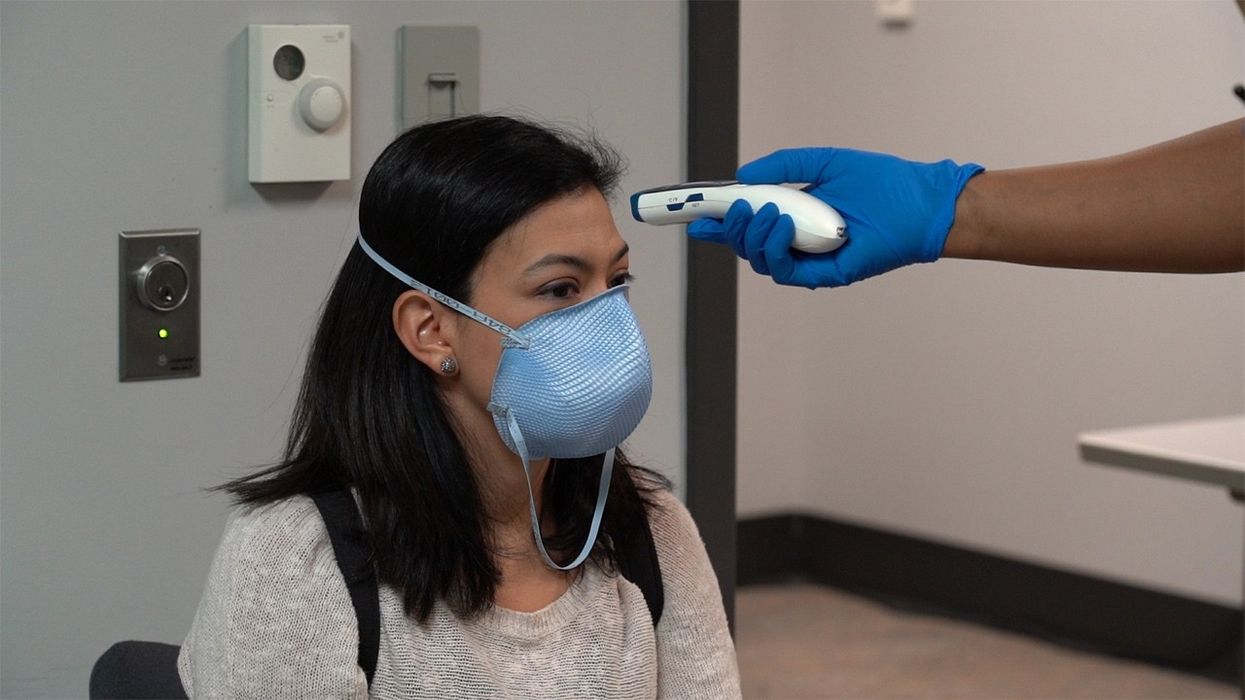Everything You Need to Know About Being (or Hiring) an On-Set COVID-19 Compliance Supervisor
We've got new jobs and standards in the film industry—and if they work, we could blaze a path to COVID-19 containment for the whole country.

Professional film sets are machines of logistical problem-solving. Production crews safely navigate volatile areas like crowd control, dangerous stunts, and enormous egos. If anyone can find a way to work safely in the face of COVID-19, it might be Hollywood.
So, say hello to your new gig as an on-set COVID-19 Compliance Supervisor.
In a recent agreement between Unions and producers, a completely new approach to film production has been outlined to pandemic production. It’s based on results from statistical modeling by Columbia University, and it dramatically reshapes the production day. New Compliance Supervisors and officers will enforce filming Zones, daily testing, and 10-hour-maximum shooting days.
For union sets, this will be a new standard. For indies, this is a blueprint to follow (and somehow budget for).
Whether you’re looking to become a COVID-19 Compliance Supervisor or apply these protocols to your own production, here is a breakdown of what you need to know.
What is a COVID-19 Compliance Supervisor, and who created it?
Last month, unions and producers reached an agreement on how to safely restart Hollywood film production. The COVID-19 RETURN TO WORK AGREEMENT published by DGA, IATSE, SAG-AFTRA AND TEAMSTERS/BASIC CRAFTS outlines the requirements that must be met for any productions going forward until August 2021.
Much of the agreements were built on from an earlier 37-page working document titled, “The Safe Way Forward” A Joint Report of the DGA, SAG-AFTRA, IATSE and Teamsters Committees for COVID-19 Safety Guidelines.
The agreement outlines not only specifics about how all sets should operate during the pandemic, but creates a new health safety team. At the heart of the health safety team is the COVID-19 Compliance Supervisor, (referred to as the Health Safety Supervisor [HSS] in previous publications) and COVID-19 Compliance Officers. From the recent agreement:
- Hiring and coordinating COVID-related medical staff
- Working with Producers, UPM (Line Producer or equivalent on multi-camera productions), 1st AD/Key SM, Department Heads and the Health Safety Manager (HSM)
- Overseeing all testing by medical personnel and handling results
- Along with the 1st AD/Key SM, giving instructions at the daily safety meetings or any time during the day when revised health safety instructions are needed
- Making sure the set follows the Zone system
- Stopping the production in event of a breach
Stopping the set? You'll need a firm constitution to make these calls, but you'll also be doing this out of life-or-death concerns. You're not going to be a producer's favorite person, but if they commit to the Zone system like they should, everyone will be fine. What is the Zone system, anyway?
The Zone System: meet the new way to run pandemic production
According to The Safe Way Forward, safety on set hinges on two things working together: testing and the Zone system. In simple terms, Zone A are places meant for actors who can’t use PPE due to their roles, with Zone B is the rest of the set, and Zone C is the outside world. Here is their breakdown:
The inherent problem with most business operations is no different than film sets: as contained as the workplace can be, everyone is still going to go home at night and weekends, bringing them back into the rest of the Zone C world. That's why the Zone system on film sets only truly works when it goes hand-in-hand with testing.
How often to test, and who to test
- Zone A personnel are tested three times a week at a minimum, and daily when scenes require close proximity or exertion (where a rapid CEPHEID test that can be completed on site in less than 60 seconds)
- Zone B personnel are tested at least once a week, preferably on a Monday or Tuesday, as well as tested and cleared prior to entering Zone B for the first time
- No one can be instantly “bumped” from Zone B to Zone A until they have been tested and cleared 24 hours before entering Zone A
- If traveling by plane, cast and crew members must be tested and cleared within 24 hours of the flight and again before entering Zone B or Zone A for the first time
How do we know the Zone System with this frequency of testing will work?
According to the first paper, "The Safe Way Forward," a model was run by Jeffrey Shaman of Columbia University to predict outcomes of different systems. Here is what the models predicted:
How to become a COVID-19 Compliance Supervisor or Officer
This role is going to be a big deal well into the future, even if/when a vaccine is found for the virus. (Especially as we don't understand if antibodies actually translate to immunity, even from those who survived COVID-19.)
If you intend to work in the Union world, you will want to reach out to your Union about the best way to get training.
If you are working non-union or independent gigs, you will start by getting trained and getting a certificate. There are online resources offering training classes specific to film production like Health Education Services that go for around $50. You can even complete free training (although not specific to film sets) from Los Angeles County. Your training will reflect whether you are looking to become the Compliance officer, or perhaps just educate yourself—and make yourself more appealing as say, a PA.
Likewise, if you are looking to hire a Compliance Officer, Health Education Services has a database of people with certificates by area and businesses like CrowdRX can provide you with full-scale solutions for Officers and on set testing.
How much does it pay?
Depending on the type of set, we are seeing rates from $25 an hour to $350-$500 a day. In an article in New York Times, film industry entrepreneur Jessica Lesley explained that she charges about $500 a day for a Supervisor and less for assistants, while some charge as much as $1,000 a day. Here's a glimpse at a recent Indeed ad from Buzzfeed, among many others:
Potential problems with these new shooting protocols
Money is at the top of the list. Not only is there a new department to hire, but the entire workday must shift in order to organize, sanitize, and keep immune systems uncompromised on set. (That last reason is why this includes working shorter days.) This means that significant budgeting must be found for these new protocols. In the conclusion, “The Safe Way Forward” mentions this and pays lip service to the notion that "women, people of color, and persons with disabilities" should not be on the chopping block first.
For independent sets that work with smaller budgets, this will be a major undertaking. Will productions compromise somewhere else, leading to a loss of work in other areas on set? Or will they cut corners with safety? Will we be lucky enough to see new state and local funding initiatives spring up to help?
We will have to find out.
“The Safe Way Forward” asks us that since film is an industry with a long history of solving logistical problems creatively, "why not use those powers to work back from a starting point of maximum safety?" It is a decent question. If film production can actually find a way to successfully apply this kind of risk mitigation, other industries and businesses might be able to follow. It's a bit of a stretch, but maybe, just maybe, Hollywood can save us from the pandemic.
If you are planning pandemic production or looking to become a Compliance Supervisor, here are the two agreements we've mentioned in this article:
What do you think? Has anyone out there planning on becoming a COVID-19 Compliance Supervisor?
Please share in the comments.




















